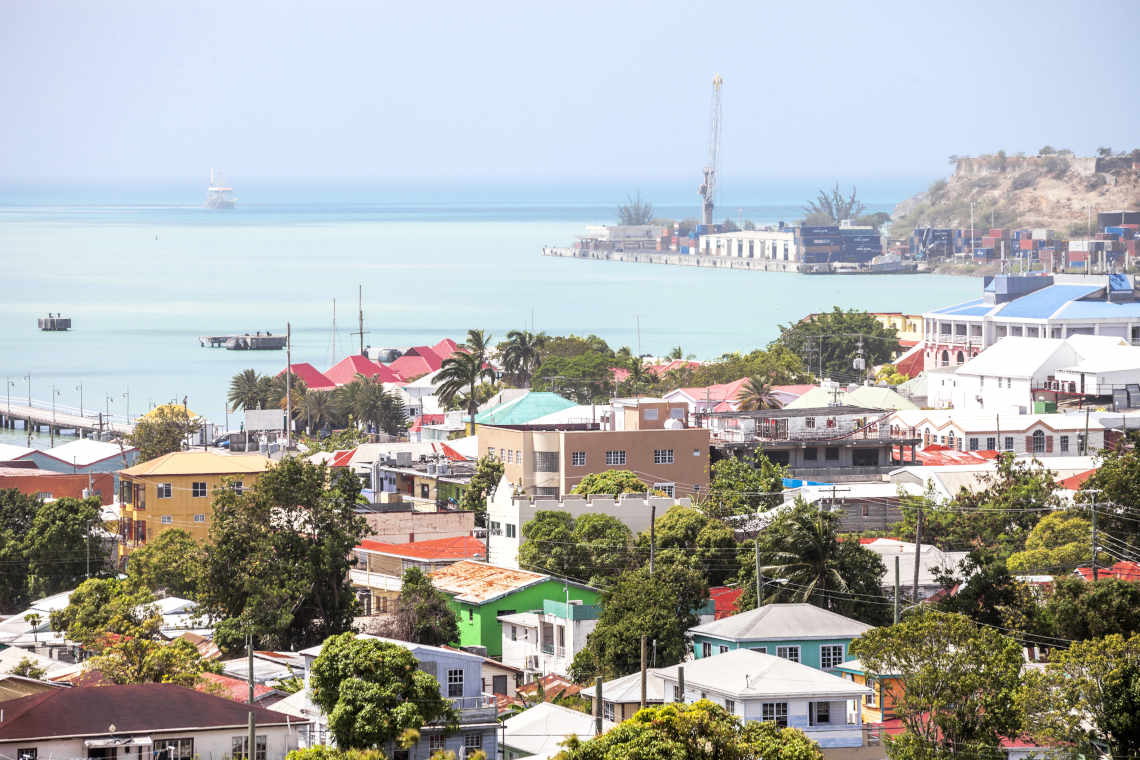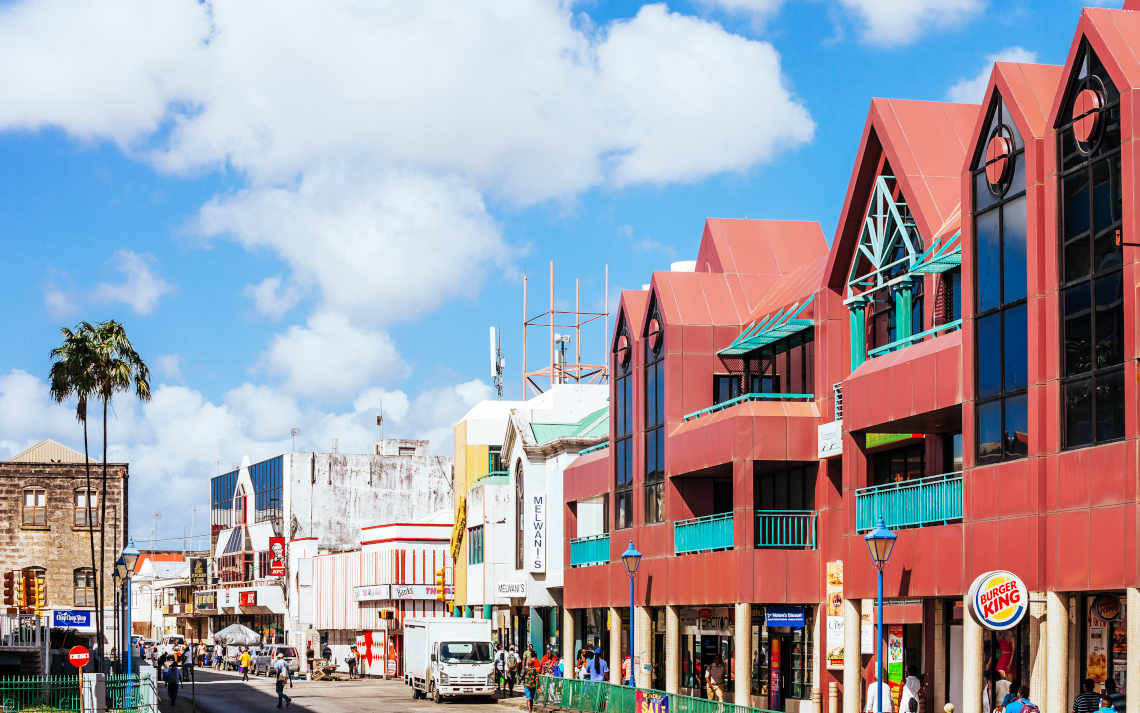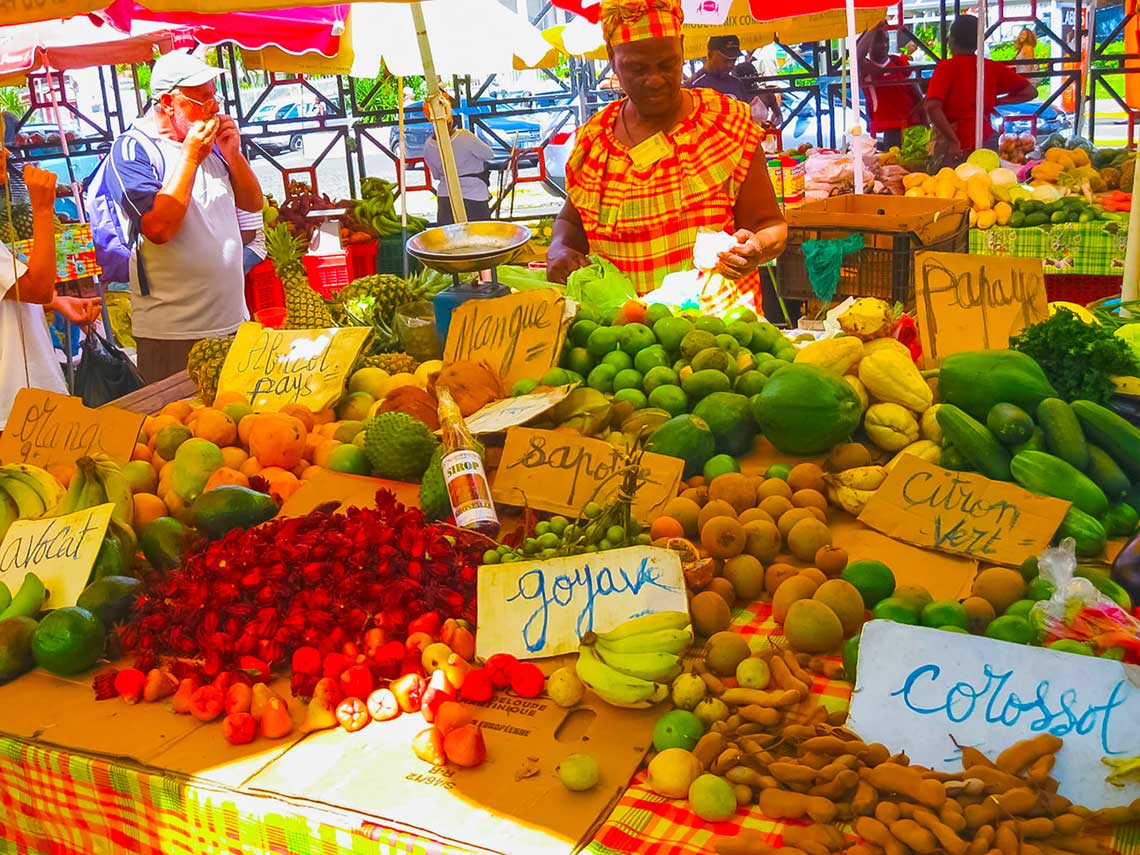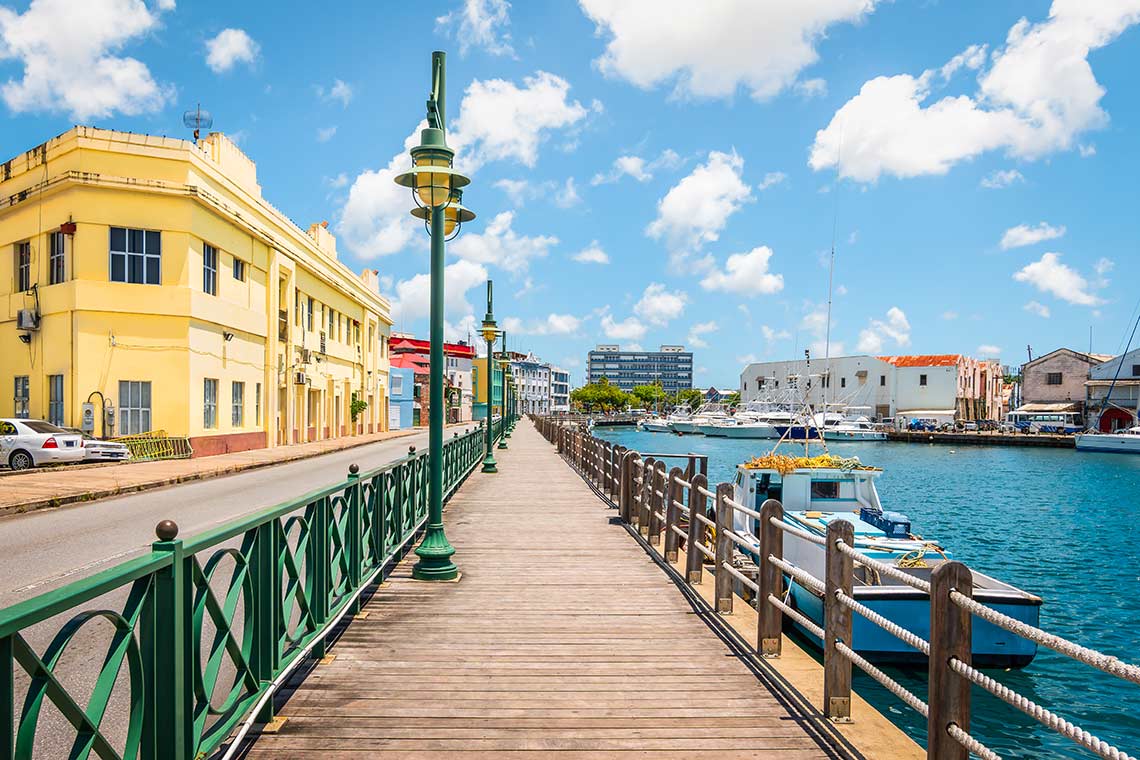Hoe kan marktonderzoek bedrijven helpen om effectief door deze diverse regio te navigeren? Van de aantrekkingskracht van de toeristische sector tot de groeiende vraag naar lokale producten en diensten, inzicht in de marktdynamiek is essentieel voor succes. Daarom biedt marktonderzoek in het Caribisch gebied bedrijven de inzichten om deze markt te betreden en te floreren.
Wat is marktonderzoek in het Caribisch gebied? Waarom is het belangrijk?
Marktonderzoek in het Caribisch gebied analyseert consumentengedrag, industrietrends en regionale concurrentielandschappen. Van het uitvoeren van enquêtes en focusgroepen tot het analyseren van economische indicatoren, marktonderzoek biedt een uitgebreid inzicht in de marktdynamiek.
Dit marktonderzoek helpt bedrijven ook om hun producten en diensten aan te passen aan de specifieke behoeften en wensen van lokale consumenten. Het stelt bedrijven in staat om opkomende trends en onontgonnen marktsegmenten in het Caribisch gebied te identificeren. Door nieuwe kansen te ontdekken, kunnen bedrijven zichzelf strategisch positioneren voor groei.
Daarnaast helpt diepgaand marktonderzoek bedrijven om markttoetredings- of uitbreidingsrisico's te beperken. Bedrijven kunnen weloverwogen beslissingen nemen en onzekerheden minimaliseren door marktuitdagingen en potentiële valkuilen te begrijpen. Het brengt echter ook andere voordelen met zich mee, waaronder:
- Nauwkeurige besluitvormingDoor gegevens te verzamelen over consumentengedrag en markttrends, kunnen bedrijven weloverwogen beslissingen nemen die aansluiten bij de eisen van de Caribische markt.
- Aangepaste productontwikkeling:Door consumentenvoorkeuren te begrijpen via marktonderzoek, kunnen bedrijven producten en diensten ontwikkelen die zijn afgestemd op de unieke behoeften en culturele nuances van consumenten in het Caribisch gebied.
- Risicoreductie:Onderzoek op de Caribische markt helpt bedrijven om potentiële risico's en uitdagingen al in een vroeg stadium te identificeren, waardoor proactieve risicomanagementstrategieën mogelijk worden.
- Strategische markttoetreding:Met uitgebreide marktinzichten kunnen bedrijven effectieve strategieën bedenken om de markt te betreden. Zo maximaliseren ze de kansen en minimaliseren ze de obstakels op de Caribische markt.
- Concurrentievoordeel:Met inzichten uit marktonderzoek kunnen bedrijven een concurrentievoordeel behalen door hun aanbod te optimaliseren en zich te positioneren ten opzichte van regionale concurrenten.
Belangrijkste voordelen van zakendoen in het Caribisch gebied
Deze prachtige regio is ook gunstig voor bedrijven. De meeste landen hebben getrainde en opgeleide arbeidskrachten en een betrouwbare infrastructuur. Het is een regio die wordt gekenmerkt door stabiele democratieën. Het Caribisch gebied heeft een grote populatie Engelstaligen. Sommige gebieden zijn ook Franstalig, Nederlandstalig en Spaanstalig.
Toerisme
Toerisme groeit in het Caribisch gebied. De infrastructuur in deze regio is uitstekend, zelfs in de meer verarmde gebieden. Deze toeristische bestemming is de perfecte setting voor investeerders die hotels willen bouwen. Het Caribisch gebied trekt jaarlijks miljoenen toeristen met zijn prachtige landschap, rijke cultuur, adembenemende attracties en accommodaties en warme bevolking.
Levensstijl
Zakendoen in het Caribisch gebied heeft veel voordelen. Eentje die potentiële investeerders vaak over het hoofd zien, is de levensstijl. Het Caribisch gebied is een prachtige locatie met prachtige stranden. De jaarlijkse temperaturen variëren van 74F tot 81F, met een zachte zeebries. Er zijn veel luxe vastgoedtransacties waaruit u kunt kiezen.
Geweldige locatie
Verhuizen naar het Caribisch gebied voor zaken heeft een concurrerend geografisch voordeel. Het heeft een strategische ligging. Zelfs gebieden in het zuiden zoals Grenada en Trinidad liggen op slechts vijf uur vliegen van de VS.
Wie gebruikt marktonderzoek in het Caribisch gebied?
Een breed scala aan belanghebbenden profiteert van het gebruik van marktonderzoek in het Caribisch gebied:
- Lokale bedrijvenBedrijven in het Caribisch gebied maken gebruik van marktonderzoek om consumentengedrag te begrijpen, groeimogelijkheden te identificeren en marktstrategieën te verfijnen.
- Internationale ondernemingenMultinationale ondernemingen die de Caraïbische regio willen betreden of daar willen uitbreiden, doen een beroep op marktonderzoek om de haalbaarheid van de markt te beoordelen, inzicht te krijgen in de regelgeving en hun wereldwijde strategieën aan te passen aan de lokale context.
- OverheidsinstantiesOverheidsinstanties gebruiken marktonderzoek om beleidsbeslissingen te onderbouwen, economische ontwikkelingsinitiatieven te ondersteunen en regionale investeringen aan te trekken.
- Non-profitorganisatiesNGO's en non-profitorganisaties maken gebruik van marktonderzoek om de behoeften van de gemeenschap beter te begrijpen, de effectiviteit van programma's te beoordelen en zich in te zetten voor maatschappelijke verandering.
- Investeerders en financiële instellingenBeleggers die op zoek zijn naar kansen op Caribische markten vertrouwen op marktonderzoek om het investeringspotentieel te evalueren, marktrisico's te beoordelen en weloverwogen investeringsbeslissingen te nemen.
Voordat u echter met marktonderzoek in het Caribisch gebied begint, moeten bedrijven zichzelf de volgende belangrijke vragen stellen:
- Wat zijn de specifieke doelstellingen van het onderzoek?: Definieer duidelijk het doel en de doelstellingen van het onderzoek om ervoor te zorgen dat deze aansluiten op de bedrijfsdoelstellingen en de besluitvormingsbehoeften.
- Wie is de doelgroep? Identificeer de demografische en psychografische kenmerken van de doelgroep in het Caribisch gebied, zodat u onderzoeksmethodologieën en -benaderingen hierop kunt afstemmen.
- Hoe is het concurrentielandschap?: Begrijp de concurrentieomgeving op de Caribische markt, inclusief de belangrijkste spelers, marktaandeel en de sterke en zwakke punten van de concurrentie.
- Wat zijn de regelgevende overwegingen?: Onderzoek naar regelgevingskaders en wettelijke vereisten die relevant zijn voor de industrie en de marktsector in het Caribisch gebied.
- Wat zijn de culturele en sociaal-economische factoren?:Houd rekening met culturele nuances, sociaal-economische omstandigheden en consumentengedrag die de marktdynamiek in het Caribisch gebied beïnvloeden.
- Hoe wordt het onderzoek uitgevoerd?: Bepaal de meest geschikte onderzoeksmethodologieën, zoals enquêtes, focusgroepen of secundaire gegevensanalyse, op basis van de onderzoeksdoelstellingen en de doelgroep.
- Wat is het budget en de tijdlijn?: Stel realistische budgetbeperkingen en tijdlijnen vast voor het uitvoeren van marktonderzoek in het Caribisch gebied om een effectieve planning en toewijzing van middelen te garanderen.
Belangrijkste industrieën in het Caribisch gebied
De Caribische regio omvat een divers scala aan industrieën die economische activiteit stimuleren en kansen bieden voor bedrijfsontwikkeling. Enkele belangrijke industrieën zijn:
Toerisme en gastvrijheid:Het Caribisch gebied staat bekend om zijn toerisme-industrie en trekt jaarlijks miljoenen bezoekers naar zijn ongerepte stranden, resorts en culturele attracties.
Agrarisch bedrijfslevenLandbouw is een belangrijke sector in het Caribisch gebied, met productie variërend van tropische vruchten en groenten tot koffie, suiker en specerijen.
Productie:Bepaalde Caribische landen hebben een productiesector ontwikkeld, met name op het gebied van textiel, voedselverwerking en lichte industrie.
Financiële diensten:Verschillende landen in het Caribisch gebied fungeren als offshore financiële centra en bieden bank-, verzekerings- en beleggingsdiensten aan.
Energie:Het Caribisch gebied onderzoekt hernieuwbare energiebronnen zoals zon, wind en geothermische energie om de afhankelijkheid van fossiele brandstoffen te verminderen.
Belangrijkste doelgroep op de Caribische markt
Het doelpubliek op de Caribische markt omvat een divers scala aan consumentensegmenten en bedrijfsentiteiten. Enkele belangrijke segmenten zijn:
- Toeristen en reizigersGezien de sterke toeristische sector in de regio vormen toeristen en reizigers een belangrijke doelgroep voor bedrijven in sectoren als de horeca, detailhandel en entertainment.
- Lokale bewoners:De lokale bevolking van Caribische landen bestaat uit consumenten met uiteenlopende inkomensniveaus, levensstijlen en culturele achtergronden. Daarom is het essentieel om te segmenteren op basis van demografie en psychografie.
- Bedrijven en investeerders:Bij B2B-targeting (business-to-business) zijn bedrijven op zoek naar partnerschappen, leveranciers of investeringsmogelijkheden binnen de Caribische markt.
- Expats en diaspora:De Caribische diaspora die in het buitenland woont, met name in Noord-Amerika en Europa, vormt een unieke doelgroep voor geldovermakingsdiensten, culturele producten en investeringsmogelijkheden in hun thuislanden.
Hoe u marktonderzoek uitvoert in het Caribisch gebied
Marktonderzoek in het Caribisch gebied vereist een op maat gemaakte aanpak om effectief inzichten te verkrijgen en de unieke kenmerken van de regio te navigeren. Hier zijn enkele methodologieën die marktonderzoeksbureaus kunnen toepassen:
- Enquêtes en vragenlijsten om kwantitatieve gegevens te verzamelen over consumentenvoorkeuren, koopgedrag en tevredenheidsniveaus in Caribische markten.
- Focusgroepen met lokale deelnemers om houdingen, percepties en voorkeuren met betrekking tot specifieke producten of diensten te onderzoeken.
- Diepte-interviews met belangrijke belanghebbenden, experts uit de sector en besluitvormers om genuanceerde inzichten te verkrijgen in de dynamiek en uitdagingen van de markt.
- Secundair onderzoek lbestaande gegevensbronnen, marktrapporten en academische studies gebruiken om primaire onderzoeksresultaten aan te vullen en een bredere context te bieden.
Wat zijn de snelst groeiende segmenten op de Caribische markt?
De Caribische markt is in ontwikkeling, met verschillende sectoren die een opmerkelijke groei en expansie ervaren. Hier zijn enkele van de snelst groeiende segmenten binnen de Caribische regio:
Toerisme en gastvrijheid: De toerisme-industrie blijft een cruciale motor van economische groei in het Caribisch gebied en trekt jaarlijks miljoenen bezoekers. Het segment omvat luxe resorts, boetiekhotels, ecotoerisme-ondernemingen en cruisetoerisme, met de focus op duurzame praktijken en unieke ervaringen.
Hernieuwbare energie: Met een groeiende nadruk op duurzaamheid en milieuverantwoordelijkheid, is het Caribisch gebied getuige van een aanzienlijke groei in hernieuwbare energieprojecten. Initiatieven voor zonne-, wind- en geothermische energie winnen aan populariteit, ondersteund door overheidsstimulansen en internationale partnerschappen.
Agrarische industrie en voedselverwerking: De landbouwsector in het Caribisch gebied breidt zich uit, gedreven door de vraag naar verse, lokaal geproduceerde producten en voedselproducten met toegevoegde waarde. Agro-industrie-ondernemingen omvatten biologische landbouw, speciale gewassen en agro-verwerking voor binnenlandse consumptie en export.
Informatietechnologie en telecommunicatie: De digitale economie groeit in het Caribisch gebied, gedreven door toegenomen internetconnectiviteit en mobiele penetratie. Technologiestartups, e-commerceplatforms en fintech-oplossingen ontstaan en richten zich op een technisch onderlegde consumentenbasis.
Financiële diensten: Het Caribisch gebied is een offshore banking- en financiële dienstenhub die internationale investeerders en bedrijven aantrekt. Fintech-innovaties, waaronder mobiel bankieren en digitale betalingen, transformeren het financiële landschap.
Kansen en uitdagingen
Er zijn veel investerings- en zakelijke kansen in het Caribisch gebied. Elk heeft unieke voordelen. Toch is verhuizen naar deze regio geen garantie voor succes. U moet ervoor zorgen dat u de juiste niche in elk gekozen land heeft. Het betekent dat u kwalitatief, kwantitatief en strategisch onderzoek moet uitvoeren voor elke locatie. Het is de beste manier om de voordelen en tekortkomingen van het opzetten van een winkel te ontdekken. Uw analyse moet u uitgebreide kennis geven over de zakelijke omgeving. U moet bijvoorbeeld op de hoogte zijn van de kosten van transport en banksystemen. Dergelijke kennis maakt het gemakkelijker om uw winstmarges te projecteren.
Helaas is het Caribisch gebied kwetsbaar voor orkanen. Een voorbeeld is orkaan Dorian, die in 2019 de Bahama's verwoestte. Dorian hing bijna twee dagen boven de Bahama's. Dit dodelijke systeem veroorzaakte een enorme stormvloed. Het overstroomde de eilanden Abaco en Grand Bahama, met honderden doden tot gevolg. Als u geïnteresseerd bent in investeren in het Caribisch gebied, is het essentieel om rekening te houden met het risico van deze superstormen.
Er is armoede in het Caribisch gebied. De niveaus blijven echter dalen naarmate de economie vordert. Het is essentieel om te bepalen waar de economie staat. U moet ook weten hoe gemakkelijk het is om een bedrijf op te zetten. Marktonderzoek stelt u in staat om het Caribisch gebied te vergelijken met andere economieën.
Over marktonderzoek in het Caribisch gebied
SIS Internationaal kan u de kwantitatieve en kwalitatieve gegevens geven die u nodig hebt. Wij kunnen u vertellen hoeveel tijd, procedures en kosten het kost om een bedrijf op te starten en te runnen in het Caribisch gebied. Kwalitatieve onderzoeksmethoden omvatten focusgroepen, klantinterviews en online communities. Kwantitatieve onderzoeksmethoden omvatten mobiele, app- en telefoonenquêtes. Strategisch onderzoek bestaat uit marktkansen en toetredingsonderzoek, concurrentieanalyse en go-to-marketstrategie.

Caribisch strategisch adviesbureau

Caribisch marktonderzoeksbedrijf

Caribisch Management Consulting Bedrijf

Marktonderzoek op Sint Maarten

Marktonderzoek in Saint Lucia

Marktonderzoek in St. Barthelemy
Bekijk alle regio's

Marktonderzoek in Trinidad en Tobago

Marktonderzoek op de Turks- en Caicoseilanden

Marktonderzoek in St. Vincent en de Grenadines

Marktonderzoek in St. Martin

Marktonderzoek op Sint Maarten

Marktonderzoek in Saint Lucia

Marktonderzoek in Anguilla

Marktonderzoek op de Amerikaanse Maagdeneilanden

Marktonderzoek in het Nederlandse Caribisch gebied

Marktonderzoek op de Kaaimaneilanden

Marktonderzoek op de Britse Maagdeneilanden

Marktonderzoek op de Bahama's

Marktonderzoek in St. Kitts en Nevis

Marktonderzoek in Montserrat

Marktonderzoek op Martinique

Marktonderzoek in Guadeloupe

Marktonderzoek in Grenada

Marktonderzoek in Antigua en Barbuda

Marktonderzoek in Jamaica

Marktonderzoek in Dominica

Marktonderzoek op Barbados




